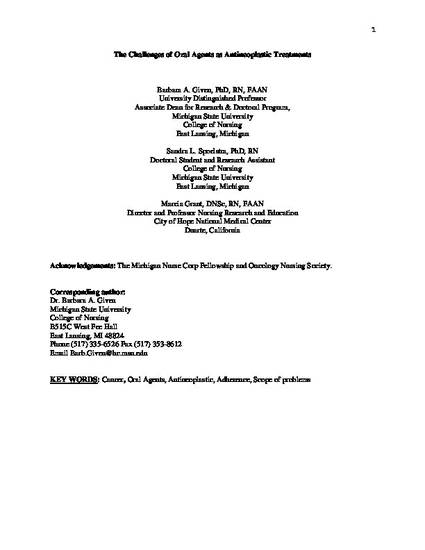
- Cancer,
- Oral Agents,
- Antineoplastic,
- Adherence,
- Scope of problems
OBJECTIVE: Given the increasing use of oral antineoplastic agents in cancer management, patient adherence is critical to successful treatment outcomes. This article reviews the scope of the problem and issues of adherence to oral antineoplastic agents.
DATA SOURCES: Research based and other articles, newsletters, and conference presentations.
CONCLUSION: Suboptimal adherence to oral antineoplastic agents is a significant clinical problem that may result in disease or treatment complications, adjustment in treatment regimen, disease progression, and premature death.
IMPLICATIONS FOR NURSING PRACTICE: Healthcare providers need to monitor and facilitate adherence by identifying barriers and implementing strategies to assure adherence, and therefore, improve clinical outcomes.
Given, B. A., Spoelstra, S. L., & Grant, M. (2011). The Challenges of Oral Agents as Antineoplastic Treatments. Seminars in Oncology Nursing, 27(2), 93–103. http://doi.org/10.1016/j.soncn.2011.02.003
Available at: http://works.bepress.com/sandra-spoelstra/51/
